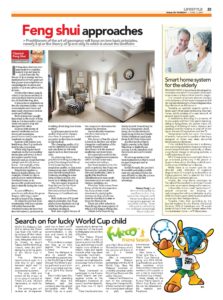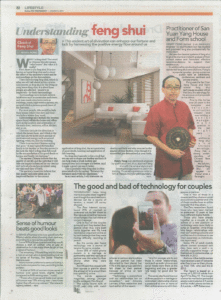(This is an article that I wrote in a column for the Sun Daily newspaper).
The ancient masters believe that we are composed of a set of energies that we absorb at birth. This combo of energies is usually not balanced and it determines the strength and weakness of our destiny and luck.
In Chinese metaphysics, every direction is associated with an energy type. For example north is water, south is fire, east is wood and so on.
The facing direction of a house is the side that brings in most of the enviromental energy. One of the most effective way to influence our destiny and luck is by living in a house with a facing direction that is beneficial to you. For example if you lack fire, then it is good to live in a house that face south (the direction of fire).
From a birth chart a Feng Shui master can tell you which facing directions are and how they are beneficial to you.
For me, the starting point in using Feng Shui to improve your destiny and luck is to select a house with a facing direction that is good for you.
The facing direction is also very important as it is also helps to determine the quality of the house. For example some houses are beneficial to career and wealth, others to good health and relationships, yet others for both and so on.
So, for example, if you are a young person aiming for a successful career, then you would want to live in a house that has a beneficial facing direction that is also good for career and wealth luck.
The facing direction of a house also determines the auspicious and inauspicious sectors within. We would want the places where we use the most such as the main door, kitchen, bedroom and so on to the in the auspicious sectors so that we are influence positively by the auspicious energy.
The auspicious energy within can be further upgraded or downgraded with the right external land form or man-made features. For example, the health and relationship quality of your bedroom in an auspicious sector of the house is enhanced if there is a hill outside. Or the career and wealth quality of your house is enhanced if there is your main door faces a lake or a river.
Certain natural land form and man-made structures such a rocky hillside or high tension pylon generate “sha” or killing energy. If they are located very near the house, these “sha” can degrade the positive energy with the affected sectors in the house, making auspicious energy within, inauspicious.
To summarize, the first step is to select a house with a facing direction that is good for you and supports your endeavors. Next utilize the auspicious sectors within and strive to have the correct supporting land form nearby. Finally ensure that there are no “sha” generating land form and man made structures in the vicinity.
It is not an easy task!




